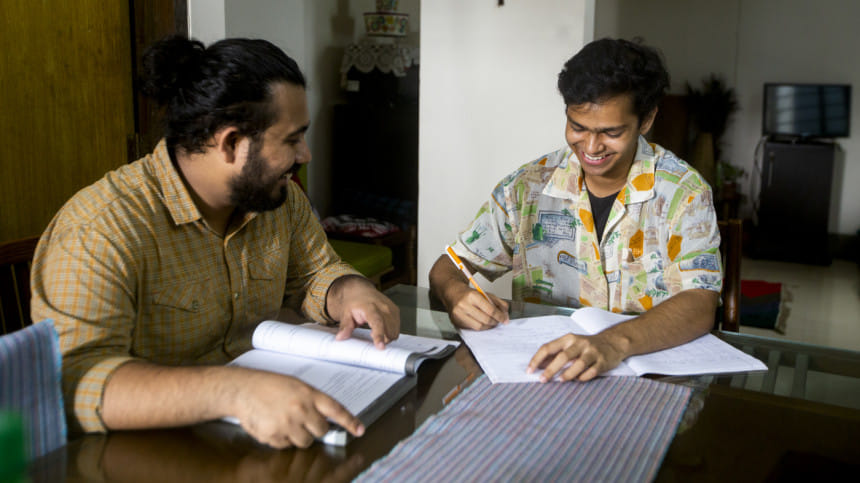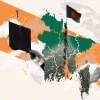An Ode to Private Tutors

When we think of private tutors, what pops up in the minds is an image of the ever-grinning pervasive older "bhaiya" from the memes. The more common reality of the well-meaning young-adult, however, often goes missing.
When asked, Huzayfa Rahman Hamza, a student at Bangladesh University of Professionals (BUP), talked about the intricacies of tutoring a young person, "I often ponder what my role is in this job. Do I just direct my students, teach them some mathematical formulas or explain some scientific terms, and go home? Or is it my responsibility to also guide them and nurture them?"
Hamza points out the dilemma of tutoring as a young person. The shared experience of life stages, as well as trying to guide a younger person responsibly, inherently makes the job very delicate and complex.
For Ahosan Habib, another student from BUP, the responsibility of teaching a young person is multifaceted. It is never just about just teaching, it's also about providing a safe space to a young person – a space that they might not get from other people in their life.
Ahosan also points out another facet about tutoring – the financial freedom it brings, and the personal sacrifices it invites.
"I am always working on the weekends, it takes away a lot of my time to relax," says Ahosan.
The choice of multiple tuitions is the norm for most tutors. Most often, the burden of personal finances is not resolved by just one tuition. Such is the case with Shihab Shahriar Khan, a student of Patuakhali Medical College.
He reflects, "As a medical student, the scope of what I can do outside my intensive studies is very limited. So most often, tutoring is the only way I can get some income."
Most university-going private tutors like Shihab depend on tuition to bear their personal and in many cases, educational costs. They end up taking on excessive workloads without paying attention to whether it is even doable. Many students face a lack of appreciation at the job as parents have unnatural expectations from student tutors.
However, according to Dhaka University student A. M. Aahad, the opposite can be true as well. He says, "I cannot say I felt the lack of appreciation for my job. The parents always liked me and considered me as another guardian for their children. They discuss important aspects of their future with me and I try to suggest the optimum decisions."
On the other hand, Aahad also views the opportunities to get good tuition jobs is skewed in favour of public university students. He muses, "I think parents have this idea that public university students are more talented somehow. If I had been a private university student, I wouldn't have gotten these tuitions, definitely not on my desired pay scale."
Hamza reiterates this point, "Since I'm a BUP student, many people don't really know the university and that affects their perception of me and my subsequent salary."
Hamza and many other young tutors have gone through these same ordeals. Their skills have long been undervalued, their dedication overlooked. Yet, that doesn't take away the fact that many of these young tutors are also just trying their best at a job that is inherently cannot be transactional. They are simultaneously playing the role of a teacher, a mentor, a friend – all while trying to go through their own life struggles. They are providing a noble service, one that deserves a lot more appreciation.
Find Raya at [email protected]

 For all latest news, follow The Daily Star's Google News channel.
For all latest news, follow The Daily Star's Google News channel. 









Comments